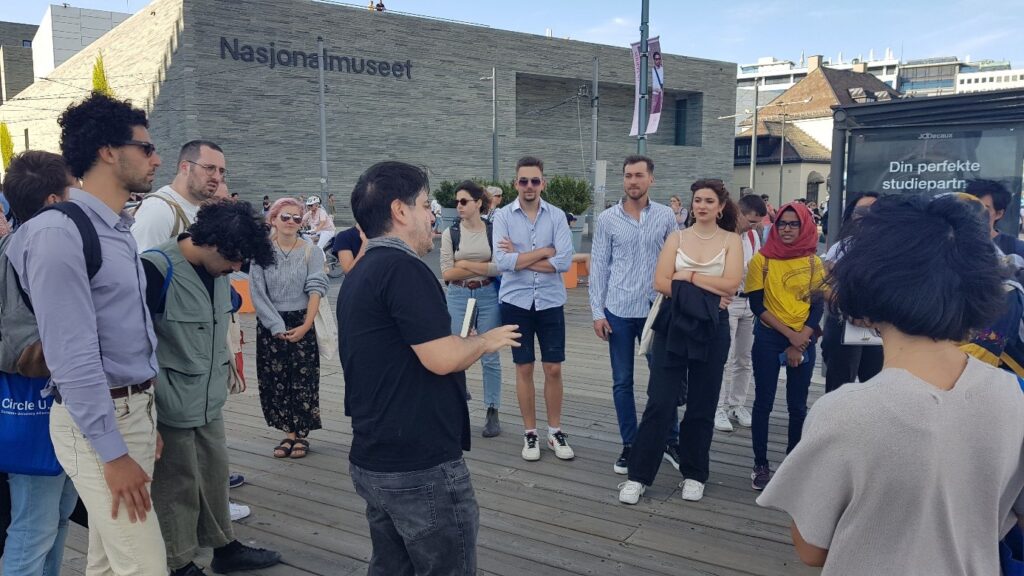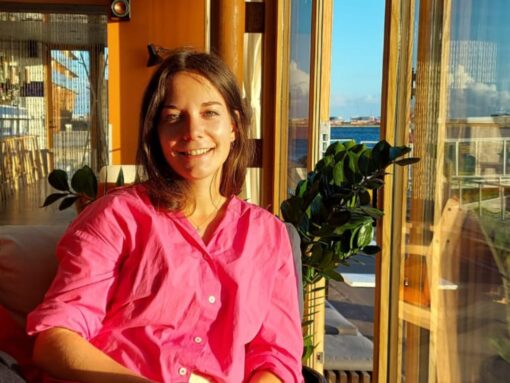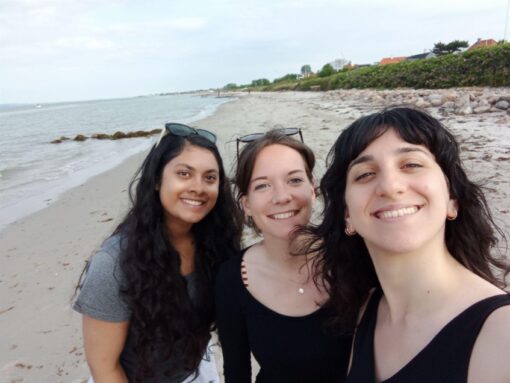Usually, our first association with ‘summer’ is holidays, but an even better way of spending your summer is by networking, exploring, meeting new people and relaxing while doing something meaningful for the future of humanity and the development of your career – aka, summer school. This summer, I was incredibly lucky to be given the opportunity to experience it for the first time. And let me tell you – it was life-changing and I am already looking forward to planning similar activities for the next summer.

In my opinion, summer schools in general are great for providing students with the opportunity to meet new people and to get to know international educational systems. The European University Alliance Circle U offered its participants all that – and much more. Today, I feel blessed with all the knowledge I gained and the amazing people I got to meet.
This summer marks the first time in which Circle U organized their summer school projects. They are planning to include even more universities and cover a wider range of topics in the future. In the summer of 2022, Circle U organized five different summer school programmes:
- 4–8 July: Rethinking Global Health (Université Paris Cité)
- 30 July – 6 August: From the Farm to the Fork (Humboldt-Universität zu Berlin)
- 8–12 August: Evidence and Democracy in Times of Crisis (University of Oslo)
- 22–26 August: Communicating Climate Science (Humboldt-Universität zu Berlin)
- 22–26 August: Reimagining Universities as Drivers of Sustainability (Humboldt-Universität zu Berlin)
I attended the summer school hosted by the University of Oslo. Even though I am a student of cognitive science and the topic of this summer school does not seem related to my future profession, I believe that the topics covered are important to every person in the world. Crises are something we all go through, either on a personal/individual level, or on a global level. It is useful to analyze how we cope with them and which mechanisms we use in these situations. Many of the presented concepts referred to the COVID-19 pandemic, because this is the most recent crisis that affected all of us. The most interesting phenomenon we came across is the trend of people changing their behaviour and approach during crises. During regular, calm periods, people use more rational, empirical strategies to inform themselves. However, in times of crises and desperate need for consolation and information, people tend to believe stories that are not based on empirical evidence – something they would not usually do in stable circumstances. It was quite eye-opening to take a look at the global pandemic from this perspective, as well as compare it to different crises throughout history and realize that people ultimately tend to use same coping mechanisms in every crisis.
The schedule of summer school was quite entertaining for itself, since we did not only take part in informative and engaging lectures, but we also carried out a group project. The entire week was dedicated to both and every working day was split into lectures and time to work on our projects. The project teams consisted of students from different universities and the goal was to approach different crises using the theories and concepts introduced in the lectures. The last day of summer school was dedicated to the presentations of our group projects. The very last assignment was to present an individual take on the group project topic and communicate it via popular science channels (blog contribution, podcast, video presentation, etc.). In addition to the educational programme, the University of Oslo planned various social activities to develop international friendships and collaborations, as well as present the Norwegian culture. Also, we experienced quite unique ways of implementing a more sustainable and environmentally friendly lifestyle.
For me, summer school was a fantastic experience that helped me develop on both the personal and professional level, while making friends for life. I would like to take this opportunity to thank the University of Vienna, the Circle U and of course the University of Oslo for providing me with this experience. I hope this text inspired and encouraged you to start thinking about how to make the best of your next summer by doing something good for yourself and society.




Really enjoyed reading this! It’s refreshing to see such an honest take on what an exchange semester is actually like — not just the travel highlights, but also the cultural shocks and the little things that take time to get used to.